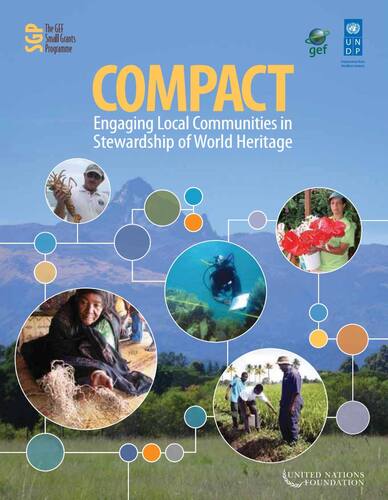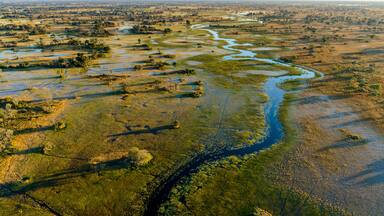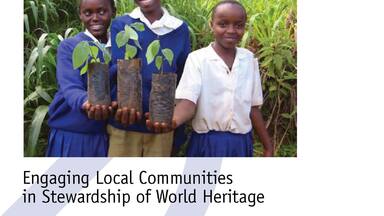Engaging Local Communities in the Stewardship of World Heritage (COMPACT)
The role of local communities in ensuring that World Heritage contributes to sustainable development was chosen by the World Heritage Committee as the central theme for the celebration of the 40th anniversary of the Convention in 2012. This theme gave recognition to the fact that local communities and indigenous peoples are, and have been for centuries, the custodians of many World Heritage sites.
Launched in the year 2000, the Community Management of Protected Areas Conservation (COMPACT) initiative was established as a partnership between the UNDP-implemented GEF Small Grants Programme (SGP), the United Nations Foundation (UNF), and the World Heritage Centre to demonstrate how community-based initiatives can significantly increase the effectiveness of biodiversity conservation in globally significant protected areas.
Over the last 12 years, the initiative has tested an innovative grant-based model for engaging local communities and indigenous peoples in the conservation and shared governance of natural World Heritage sites. Through the provision of over 420 small grants channeled directly to community-based organizations and local NGOs, COMPACT has been working in the buffer zones and surrounding landscapes of eight current or proposed UNESCO World Heritage sites including: the Belize Barrier Reef (Belize), Sian Ka’an (Mexico), Morne Trois Pitons (Dominica), Mt. Kenya (Kenya), Mt. Kilimanjaro (Tanzania), the Puerto-Princesa Subterranean River National Park (Philippines), the Djoudj Bird Sanctuary and transboundary Biosphere Reserve (Senegal/Mauritania), as well as the forets seches tentative list nomination of South-West Madagascar.
A side event was organized on 23 June 2013 during the 37th session of the UNESCO World Heritage Committee to share the main findings of the initiative, as well as to launch a 12-year report entitled 'COMPACT: Engaging Local Communities in the Stewardship of World Heritage'. Speaking at the launch event amongst a panel of eminent experts drawn from across the advisory bodies, indigenous peoples representatives, and government delegations, Ms. Fatou Sambh Ndiaye (Direction des Parcs Nationaux du Senegal) noted the significant contribution made by COMPACT to the improved co-management of the Djoudj World Heritage site, the livelihood benefits accruing to local communities, as well as the critical importance of the empowerment of women’s organizations.
Mr. Tim Badman (IUCN, Director of World Heritage) noted that based on the lessons learned emanating from COMPACT across a range of socio-ecological settings, a number of features may be of relevance for the Committee to consider further including: (1) the adoption of a multi-stakeholder Local Consultative Body (LCB) for World Heritage sites to ensure the principles of accountability, transparency and good governance promoted by the IUCN for each World Heritage site are mainstreamed and standardized; (2) the opportunity to develop sustainable financing schemes to fund small grants at the level of individual protected areas, offering the potential to increase the local ownership, as well as the conservation effectiveness, of World Heritage inscriptions; and (3) the need to further associate the COMPACT landscape-level methodology with the existing ‘Enhancing our Heritage’ tool developed jointly by the World Heritage Centre, IUCN and UNF to improve the management effectiveness and governance of World Heritage sites.
Many events and celebrations were organized in 2012 to mark the 40th anniversary of the World Heritage Convention, giving new impetus to how the Convention can be used more effectively to foster sustainable development to the benefit of local communities. In this spirit, the World Heritage Centre and the GEF Small Grants Programme are planning to produce an updated COMPACT toolkit for application in other World Heritage sites and protected landscapes around the world. As noted by a number of speakers at the side event during the 37th session, the opportunity to replicate the COMPACT approach in additional World Heritage sites represents a field-tested and demonstrated model to achieve the full and effective participation of indigenous peoples and local communities in the work of the Convention.
To download a copy of the publication please visit: www.sgp.undp.org or press here.
World Heritage Paper 40 on “Engaging Local Communities in Stewardship of World Heritage: A methodology based on the COMPACT experience” was launched in mid-November 2014 at the IUCN World Parks Congress in Sydney, Australia.




